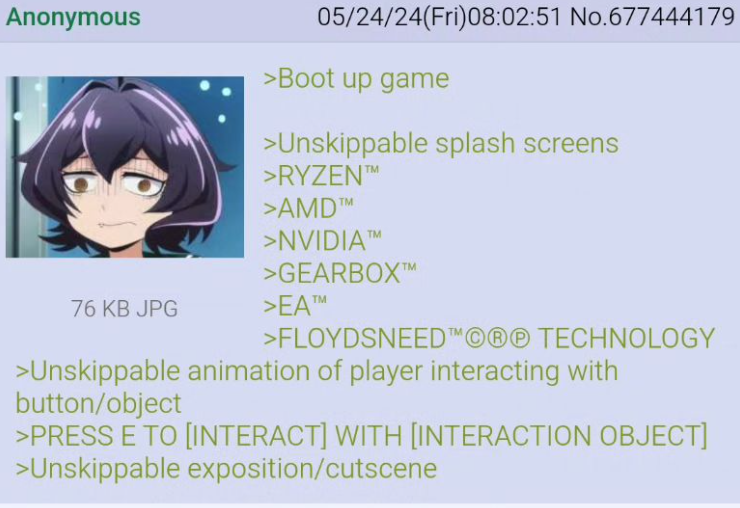this post was submitted on 05 Sep 2024
684 points (98.7% liked)
Greentext
7744 readers
397 users here now
This is a place to share greentexts and witness the confounding life of Anon. If you're new to the Greentext community, think of it as a sort of zoo with Anon as the main attraction.
Be warned:
- Anon is often crazy.
- Anon is often depressed.
- Anon frequently shares thoughts that are immature, offensive, or incomprehensible.
If you find yourself getting angry (or god forbid, agreeing) with something Anon has said, you might be doing it wrong.
founded 2 years ago
MODERATORS
you are viewing a single comment's thread
view the rest of the comments
view the rest of the comments

Mine was SKI OR DIE, and young me was very impressed. If anything, I might actually be more impressed now by the ingenuity in tricking chiptune technology into sounding plausibly like a human voice!
The NES actually did have a 7-bit PCM audio channel, there wasn't really any "tricking" beyond finding the storage capacity to hold a sample of useful size.
Okay, more I'm legitimately interested. All this time I'd assumed that the voice was a clever manipulation of the chiptune tech to make it sound like a human being. But it was actually just a dramatically compressed audio clip? That might be even more impressive.
Some technical details then, if you're interested!
https://www.nesdev.org/wiki/APU#DMC_($4010%E2%80%93$4013)
The most important point for getting "higher" quality audio from it is probably this:
Which is why you generally only heard it on title screens. Usage in games was much rarer, and usually much shorter samples.